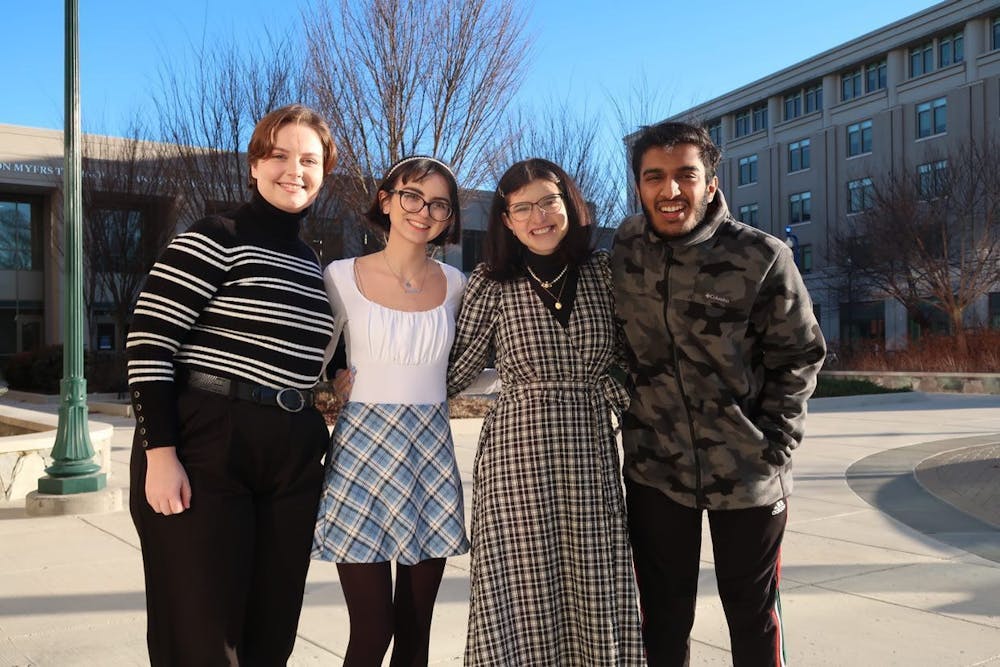This article is an opinion piece and does not necessarily reflect the views of The Eagle and its staff. Editor’s Note: This op-ed contains mention of sexual assault.
American University’s newest campaign is titled “Change Can’t Wait.” According to AU’s website, the University promotes students “thriving in a diverse, inclusive environment that supports innovative minds and the purposes they courageously pursue.” The University considers itself a leader in the D.C. community that “create[s] space for diversity of thought,” and constantly promotes that they are anti-racist and forward-thinking. Despite this, AU has stifled the free speech of students by prohibiting the creation of an Abolish Greek Life club on campus. Clearly, for the administration, change can wait.
We were inspired to form a club to advocate for the abolition of Greek life after seeing the constant promotion of fraternities and sororities on campus with zero pushback. When it comes to Greek life at AU, there is no room for a different point of view. Greek life has historically been a racist, classist and sexist institution from its origin. The culture of Greek life leads to drug and alcohol abuse, sexual assault and sometimes even serious injury and death. This perspective on Greek life needs greater attention on AU’s campus. As a result, we decided to form a campus organization to educate the community about the failings of Greek life while advocating for its abolition and replacement. Our club application was promptly rejected by the AU administration.
The reason for our rejection was that the Center for Student Involvement could not approve of an organization that seeks to abolish a University department. We were shocked, both because this is not publicly stated to be a University standard for campus organizations and we had no idea that Greek life was so institutionalized at this school that it was an established department, not just a club. They refused to recognize us unless we abandoned our abolitionist values and vision. It is extremely telling that the school attempts to sanitize any student activity that is unpalatable to its institutions, regardless of their problematic nature.
The rejection of our club made us feel powerless given that AU makes it virtually impossible to organize without school approval. Without club status, we cannot table on the quad, put up flyers, host events, or receive University funding — which forces any money we use to come out of our own pockets. This is the fundamental issue with AU’s decision. As an unrecognized campus organization, we still have the ability to educate over social media and work off-campus.
However, AU is forcing an issue that is intimately tied to conversations about the University and its campus away from the very place it is meant to be discussed. They limit our ability to advocate for our ideas because they run contrary to AU’s beliefs, despite supposedly being a University open to all opinions.
This University saw no issue in perpetuating harm toward its Black students by allowing AU College Republicans to bring in a speaker who supports lynching. Yet when it comes to student organizations which seek to express their desire to see Greek life removed from AU’s community, the University picks and chooses which voices are enabled and amplified. This is especially stark when looking at the results of the two Greek life referendums, indicating that abolishing Greek Life is not only a widely held opinion, but one that a plurality of the voting student body holds. When AU students raise concerns over the impact of allowing speakers like Chip Roy and Tzipi Livni to come to campus, the University seems to throw its hands up and act like it is simply facilitating the sharing of varying political views. But as we have seen and what the four of us have experienced, is that when it comes to voices that inconvenience the University, AU most certainly can, and will, silence them.
The hypocrisy continues when we think back to AUx1 and AUx2, which every student is required to take. While AUx1 centers around campus resources, “AUx2 aims to equip students to begin the practice of engaging in dialogue with recognition of impact on individuals, communities and structures.” What is the point of having discussions about institutional racism, classism, homophobia and violence if AU prohibits us from making any real, material change to these structures?
Of course, dialogue is the first step in any movement for progress, but talking is not enough. Not when complacency results in sexual assault and death. Greek life is an institution that has no place on our campus. We deserve the right to speak up against it. By silencing our organization, AU proves its values are nothing more than words on a Wonk bus. Contrary to popular belief, AU does not want to hear your voice.
Parthav Easwar is a sophomore in the College of Arts and Sciences and School of Public Affairs. Olivia O’Connor is a sophomore in the College of Arts and Sciences. Isabella Paracca is a sophomore in the College of Arts and Sciences. Abigail Sharkis is a sophomore in the School of Public Affairs.





